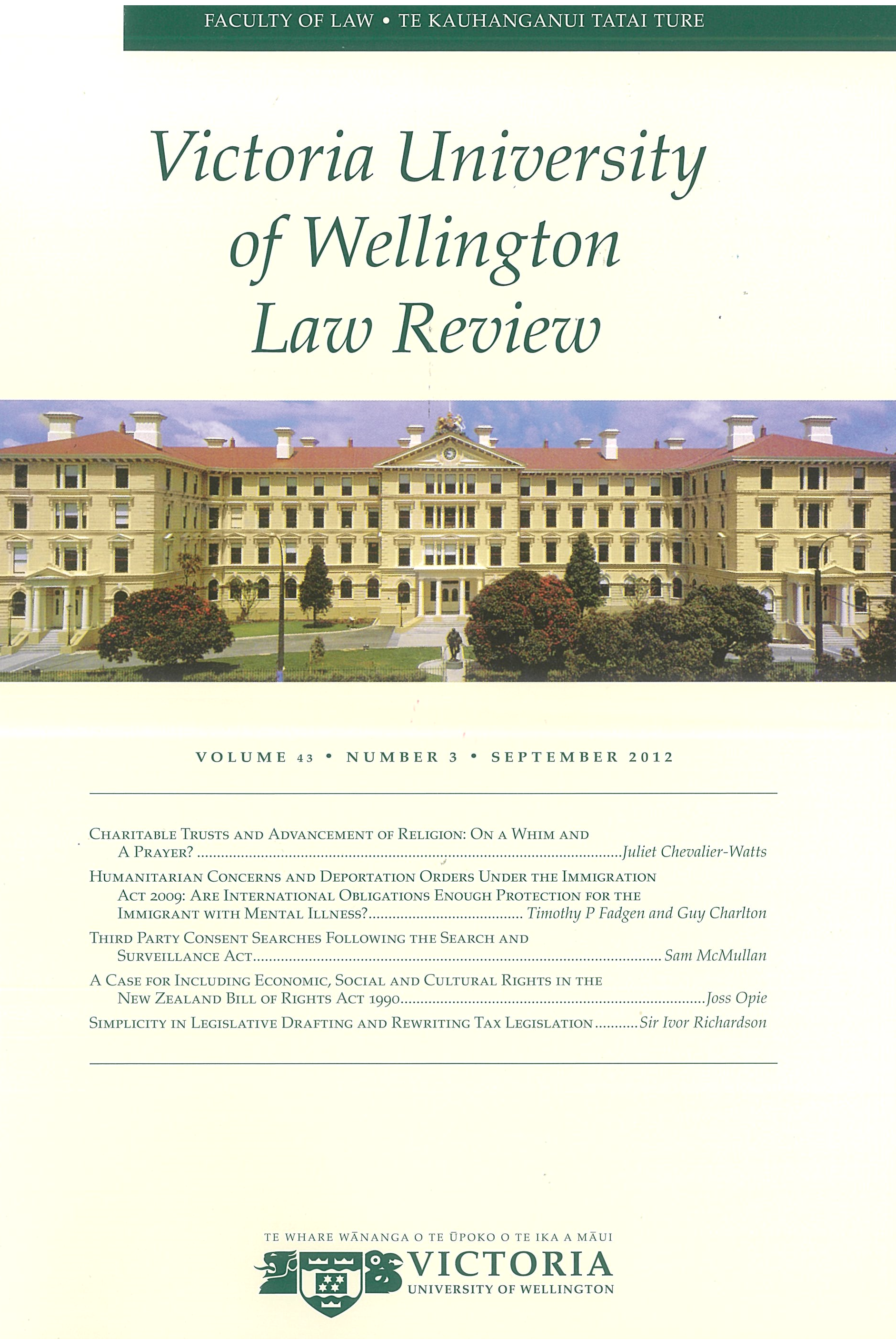Third Party Consent Searches Following the Search and Surveillance Act
DOI:
https://doi.org/10.26686/vuwlr.v43i3.5030Abstract
Many New Zealanders live in shared living arrangements. The result of this is that reasonable expectations of privacy are becoming more limited. State officials may conduct a lawful search where a person consents to such a search if that person has the authority to consent. Where people live in shared living arrangements, several people may have authority to consent to a search of the same property. This article explores the extent of a third party's power to consent to property searches where more than one person has authority to consent to a search under the Search and Surveillance Act 2012. It argues that the question of reasonable expectations of privacy should not be assessed by reference to property rights. It also considers the concept of "apparent" authority which has arisen in New Zealand from the Court of Appeal's decision in R v Bradley as well as the concept of a present and objecting occupant which has arisen in the United States in the Supreme Court decision of Georgia v Randolph.
Downloads
Downloads
Published
How to Cite
Issue
Section
License
Authors retain copyright in their work published in the Victoria University of Wellington Law Review.


